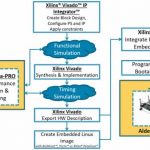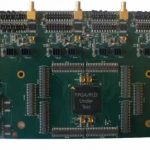Designers tend to put tons of energy into pre-silicon verification of SoCs, with millions of dollars on the line if a piece of silicon fails due to a design flaw. Are programmable logic designers, particularly those working with an SoC such as the Xilinx Zynq, flirting with danger by not putting enough effort into verification?… Read More
Tag: testbench
Aldec extends FPGA and ASIC flows at DAC
Aldec tools and services have long been associated with FPGA designs. As FPGAs have evolved toward more RTL-based designs, the similarities between a modern FPGA verification flow and an ASIC verification flow often leave them looking virtually the same. … Read More
Fastest SoC time-to-success: emulators, or FPGA-based prototypes?
Hardware emulators and FPGA-based prototyping systems are descendants of the same ancestor. The Quickturn Systems Rapid Prototype Machine (RPM) introduced in May 1988 brought an array of Xilinx XC3090 FPGAs to emulate designs with hundreds of thousands of gates. From there, hardware emulators and FPGA-based prototyping … Read More
Secret Sauce of SmartDV and its CEO’s Vision
SmartDV started as a small setup in Bangalore in 2008 and by now is one of the most respectable VIP (Verification IP) companies in the world. Having a portfolio of 83 VIPs in its kitty and growing, it has a large customer base, including the top semiconductor companies around the world. The company has grown significantly and is raring… Read More
Real FPGAs don’t eat fake test vectors
Vector blasting hardware is as old as digital test methodology itself. In the days of relatively simple combinational and finite state machine logic, a set of vectors aimed broadside at inputs could shake loose most faults with observable outputs. With FPGAs, creating an effective set of artificial test vectors has become a lot… Read More





